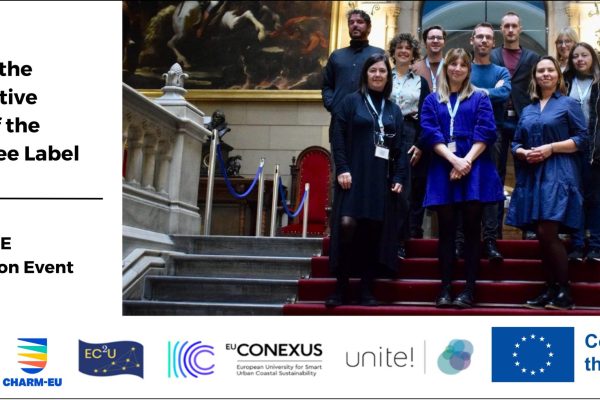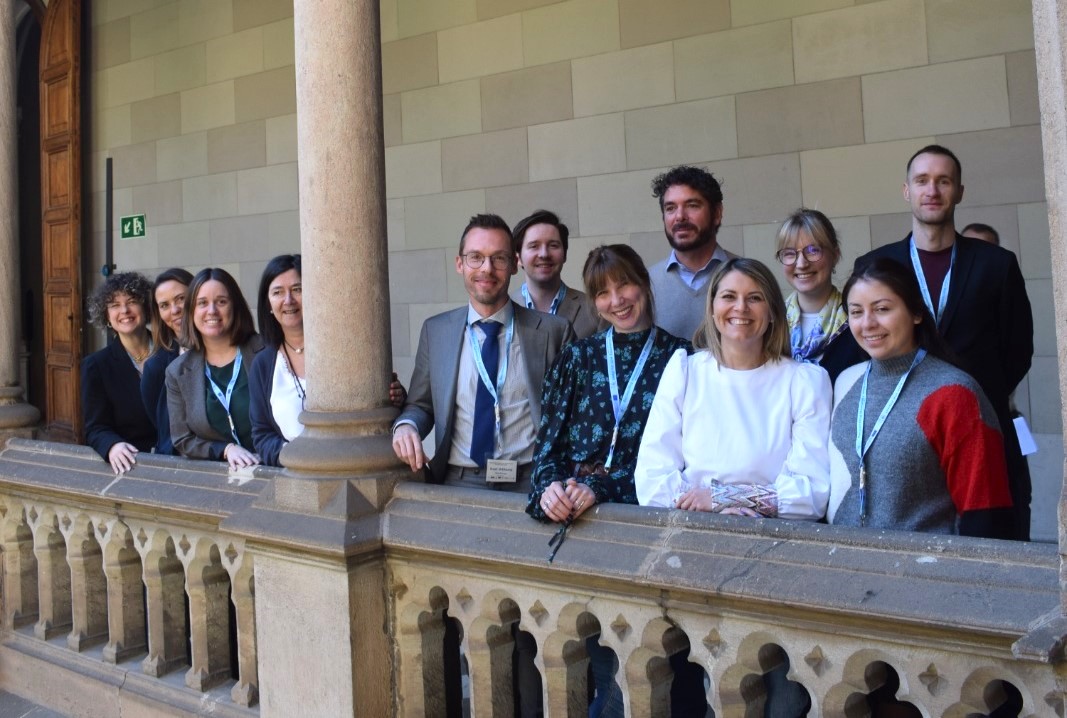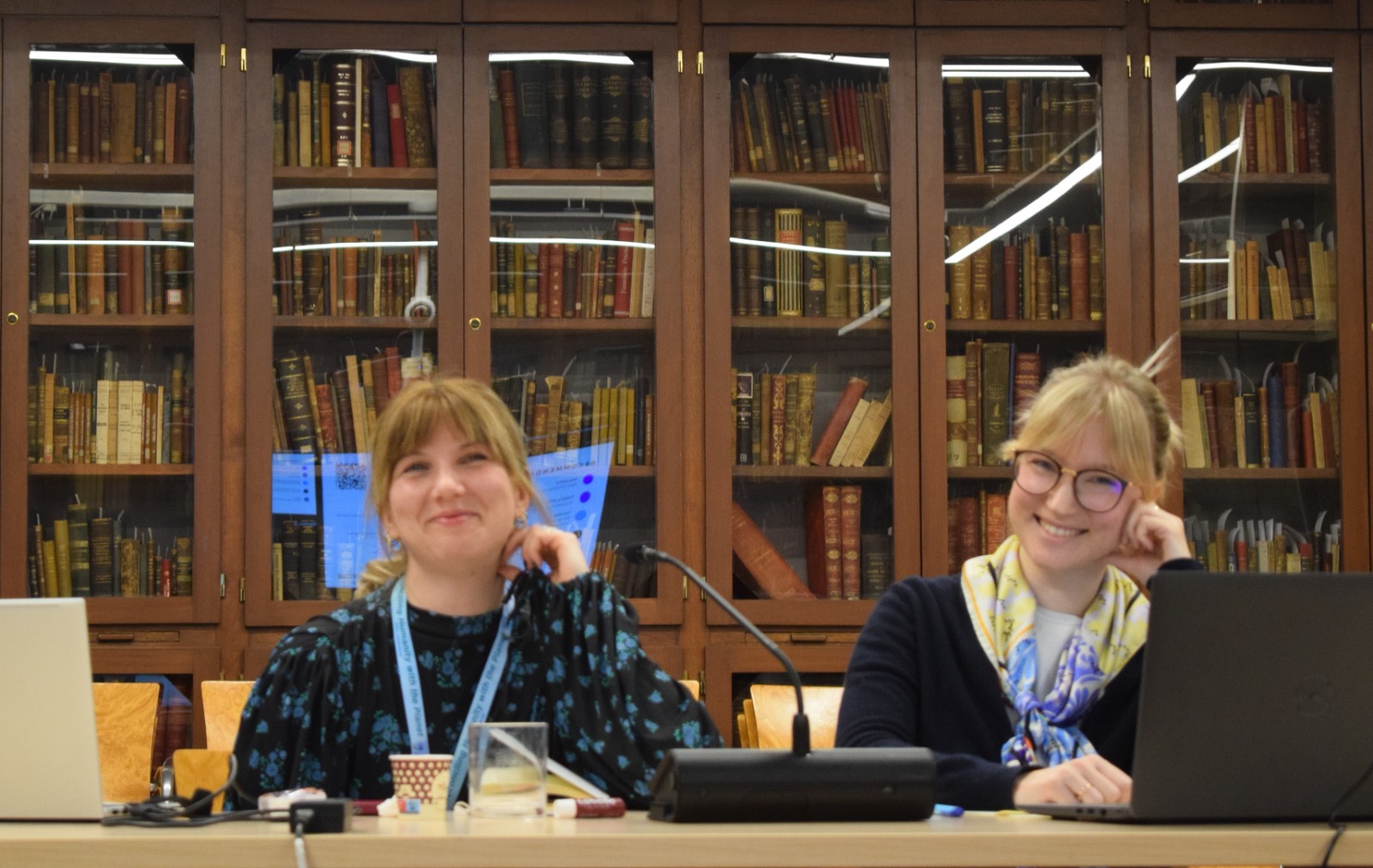The ED-AFFICHE Final Dissemination Event, held on March 5, 2024, marked a crucial milestone in the pursuit of a European Degree Label (EDL). The event gathered more than 300 participants, among them were students, student organizations, representatives from the European Commission (EC), ministries, quality assurance agencies, universities and Higher Education associations. The aim was to shed light on navigating joint programs (JPs), legislative best practices, and future developments in the EDL.

ED-AFFICHE achievements include, mapping obstacles to transnational collaboration in Higher Education, analysing criteria for the EDL, refining them based on university stakeholders’ opinions as well as provide decision makers and HEIs with recommendations to facilitate transnational collaboration among universities and to implement the European degree.
Challenges, Opportunities, and Insights from Joint Programme Coordinators
One of the first deliverables from ED-AFFICHE includes the results of the survey on European Degree challenges and opportunities for JP Coordinators. Key insights from the survey were Higher Education Institutions (HEIs) involvement, transparent learning outcomes, and flexible student mobility. Some critical points were flagged in the survey, such as the challenges in transnational JPs delivery and multilingualism, and major barriers such as lengthy accreditation, insufficient funding, and difficulties arising from different academic calendars, impacting staff and teacher availability.
The findings from the survey offered the possibility to create specific recommendations for various stakeholders, available in the report on the outcomes of the European Degree criteria mapping exercise, here.
Best Practices in Legislations
In the endeavour to map legal obstacles for the joint programme development, the ED-AFFICHE team engaged in periodical consultations with legal experts and national and regional authorities to identify obstacles for transnational collaboration in higher education. Certain legislative changes resulted from dialogues within the project framework.
During the event and in the final policy report on best practices and recommendations on the future development & implementation of joint programmes in Europe which will be published on 15 March 2024, ED-AFFICHE proposed different strategies to overcome the legal obstacles,in which the European Degree can work as a common denominator, facilitating coordinated efforts among member states to implement shared solutions.

The Future of the European Degree Label
ED-AFFICHE collected inputs on the future of the EDL from 2,546 students, 67 employers, and 8 QA agencies, through targeted surveys and consultations. The following main inputs have been retained and supported the ED-AFFICHE team in providing recommendations on the refinement of the criteria associated to the European Degree Label:
Students emphasized the importance of interaction with the labour market, access to inter-campus facilities, and the need for financial support for mobility.
Employers underscored the importance of co-developing JPs from the early stage and transversal skills.
QA agencies emphasize the ease of accrediting JPs and the importance of clear consortium agreements.
Drawing upon these perspectives, ED-AFFICHE on the importance of consortium agreements, and the use of the European Approach for accreditation processes and more. These recommendations tailored for decision-makers and QA agencies will be unveiled on March 15, 2024.
Design of the European Degree Label
Finally, ED-AFFICHE presented for the first time four design proposals for the EDL, each with its own set of advantages and challenges.
The first design suggests awarding the label directly to a student;
The second design proposes the label to be awarded to a programme;
The third design envisions the label as a logo;
The fourth design suggests awarding the degree directly to a student. This design represents the highest integration level, but it requires extensive legal interventions.
All the different designs have different legal consequences. All of them need clarity and transparency and the involvement of national and/or regional regulators.
Conclusions
ED-AFFICHE wants to emphasize the importance of fostering dialogue and cooperation among different stakeholders in the EDL, highlighting the need for coordination by the EC. The significance of addressing legal obstacles through coordinated efforts and maintaining constant dialogue between the EC, national and regional authorities, QA agencies and universities. Students and employers have also a pivotal role in the process as end-users of the EDL. Additionally, the success of the EDL is contingent upon securing adequate funding.
ED-AFFICHE calls all actors to stay active, maintain collaboration, benefit from existing tools, and attach financial instruments to the EDL for smooth processes and student benefits. The journey of ED-AFFICHE, weaving together the efforts of 51 universities, ministries, students, Quality Assurance agencies, employers, and diverse stakeholders, illuminates the profound impact of dialogue. It is a testament to how conversation can pave the way for meaningful change, influencing both legislation and practices. The resonance of our collaboration echoes in the participation of over 300 individuals at our final event. Their presence speaks volumes about the strength of our collective endeavor.
We extend our gratitude to all our partners and associated contributors for their active involvement in bringing about impressive results. Together, we have built a foundation for sustainable progress, fostering invaluable collaboration and expertise along the way.
Stay tuned to discover our final deliverables on March 15, 2024, and the event hosted by the European Commission on April 29th!
We are very proud of the collaboration we have created within the ED-AFFICHE project and I believe it is shared thought within the consortium that this collaboration will continue to exist in one way or another. We hope that the European Commission will continue to motivate this collaboration because we believe that the expertise gained in all the 6 pilots cannot be neglected, and, if we manage to continue this collaboration, everyone is more than welcome to join us, to be as representative as possible.
Laura Colò, ED-AFFICE Project Officer

The event was moderated by Marta Jaworska-Oknińska, the 4EU+ Educational Coordinator and the speakers that participated in the event were Meritxell Chaves, CHARM-EU Alliance Manager (UB); Laura Colò, ED-AFFICHE Project Officer; Mirko Varano, Senior Advisor International Projects KTH Royal Institute of Technology (Unite!); Antonella Forlino, Vice-Rector Internationalization of the University of Pavia (EC2U); Kurt Willems, ED-AFFICHE Project Coordinator (UnaEuropa); Neringa Narbutiene, EU-CONEXUS Institutional coordinator; Josef Matoušek from Charles University (4EU+) and Blanca Burillo Lago, CHARM-EU Communications Manager (UB).
ED-AFFICHE Final Dissemination event on YouTube.
Photos have been taken by Agnela Carola Maticorena Benites, Comunications Officer at EU-CONNEXUS (Catholic University of Valencia)